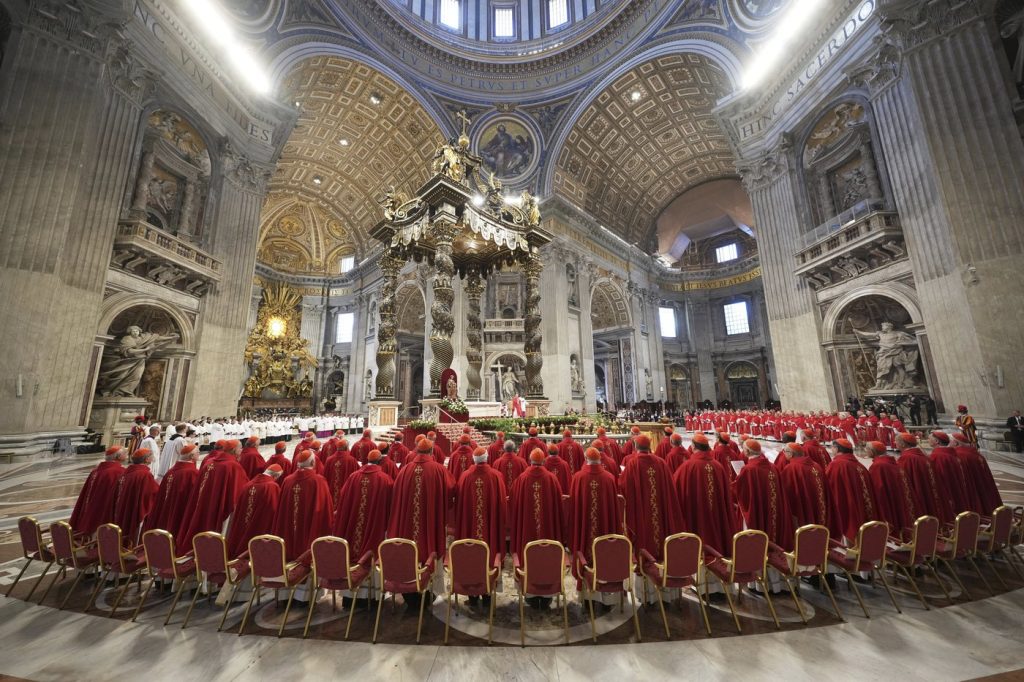VATICAN CITY (AP) – Pope Francis, who has served for 12 years, will leave his successor with considerable unfinished business and pressing challenges. Chief among these are the Vatican's problematic finances, ongoing wars across multiple continents, and discontent among traditionalists regarding his restrictions on the old Latin Mass. As the cardinals gather in the Sistine Chapel to elect the 267th pope, the new leader will be faced with pivotal decisions: To continue, adjust, or completely alter Francis’ policies on key issues like migrants, environmental stewardship, and social justice.
One significant area of concern is the role of women in the Catholic Church. Francis made notable strides in promoting women to leadership positions, a departure from the past. The new pope must choose whether to uphold, accelerate, or retreat from this legacy. With women constituting a lion's share of the church's workforce in schools and hospitals and often shouldering the responsibility of passing on the faith, they have increasingly voiced their dissatisfaction over their perceived second-class status. Alarmingly, the Vatican reported a decline of around 10,000 nuns per year for over a decade, reducing their total to approximately 599,229 by the end of 2022, down from 702,529 in 2012.
Maria Lia Zerbino, an Argentine woman appointed by Francis to advise on bishop nominations, emphasizes that women are crucial to the church's future, stating, “We are the great majority of the people of God.” The Women's Ordination Conference has criticized the exclusion of women from critical church roles, labeling it a scandal. Gervase Ndyanabo, a lay leader in Uganda, also called for increased laity and female participation in church administration, criticizing the slow pace of progress.
Another pressing issue is the polarization between progressive and traditionalist factions within the church. An anonymous letter circulated in 2022 from Cardinal George Pell, posthumously revealing his dissatisfaction with Francis’ papacy, called for a return to traditional values and governance styles. A subsequent letter from another unnamed cardinal, signed “Demos II,” echoed this sentiment, denouncing Francis' style as autocratic and advocating for a restoration of lost truths within the church. This polarization has been markedly felt in the United States, where social media has amplified dissent against both the Vatican and local church leadership.
The issue of clergy sexual abuse continues to hang over the church, with advocates urging the incoming pope to treat it as a top priority. While Francis and his predecessor, Pope Benedict XVI, made strides toward accountability and proposed reforms, a culture of impunity and a lack of transparency persist. Survivors express deep dissatisfaction with how cases have been handled, and advocate groups are calling for stricter zero-tolerance policies against offenders. Peter Isely from the U.S. survivor group SNAP pointed out the discrepancy in the church’s approach to abusers compared to the stringent criteria for ordination.
LGBTQ+ outreach is another area ripe for debate. Francis famously expressed, “Who am I to judge?” in relation to LGBTQ+ individuals, emphasizing that they are welcomed in the church. However, his successor will need to navigate significant opposition, with several regional bishops, especially from Africa, dissenting against the acceptance of same-sex unions. Rev. James Martin, known for his outreach to LGBTQ+ Catholics, remains hopeful, suggesting that there’s a balance to strike between embracing inclusivity while adhering to fundamental doctrines.
In summary, the new pope will be tasked with taking a stance on these complex and pressing issues that reflect the ongoing evolution and challenges facing the Catholic Church. Each of these matters not only holds implications for the church's internal dynamics but also its relationships with broader society.











